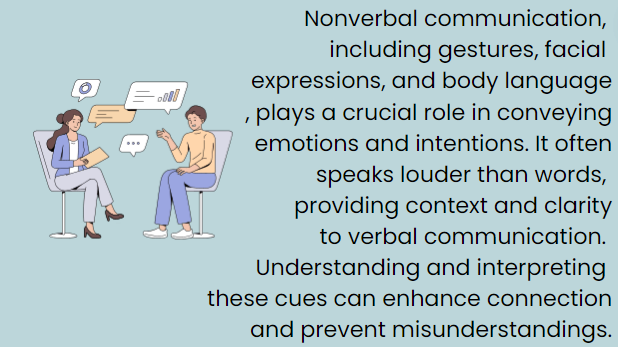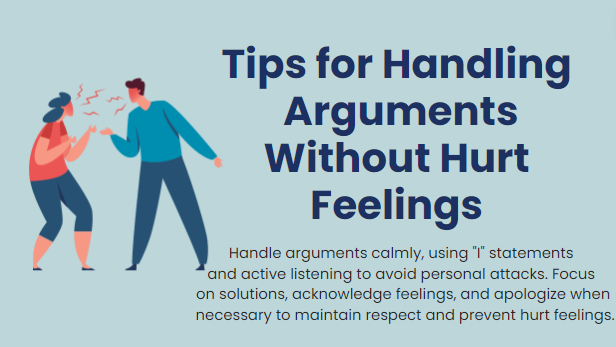Arguments are an inevitable part of human relationships, whether with family, friends, or colleagues. While disagreements can be challenging, they don’t have to result in hurt feelings or damaged relationships. This article will provide you with practical tips and strategies to handle arguments effectively, ensuring that both parties feel heard and respected.
Understanding the Nature of Arguments
Before diving into specific techniques, it’s essential to understand what arguments really are. At their core, arguments are differences in opinion or perspective. They arise when two or more people have conflicting views on a particular subject. Recognizing this can help you approach disagreements with a more open mind.
Key points to remember:
- Arguments are normal in relationships
- They often stem from misunderstandings
- Conflicts can be opportunities for growth and improved communication
- The way arguments are handled can strengthen or weaken relationships
- Most arguments are rooted in unmet needs or expectations
The Importance of Emotional Intelligence
Emotional intelligence plays a crucial role in handling arguments without hurt feelings. It involves recognizing and managing your own emotions, as well as being aware of others’ feelings. Developing these skills can significantly improve your ability to navigate conflicts smoothly.
| Components of Emotional Intelligence | Description | How It Helps in Arguments |
|---|---|---|
| Self-awareness | Understanding your own emotions and triggers | Helps you recognize when you’re getting upset and why |
| Self-regulation | Managing your emotions and responses | Allows you to stay calm and rational during heated discussions |
| Empathy | Understanding and sharing the feelings of others | Enables you to see the other person’s perspective |
| Social skills | Communicating effectively and building relationships | Helps you express yourself clearly and maintain positive interactions |
| Motivation | Having a drive to resolve conflicts constructively | Encourages you to work towards mutually beneficial solutions |
See also>> How to Create a Self-Care Routine That Fits Your Life
Effective Communication Techniques
Communication is the cornerstone of resolving arguments without causing hurt feelings. Here are some techniques to enhance your communication during disagreements:
- Active Listening: Pay full attention to what the other person is saying without interrupting. Show that you’re listening through nonverbal cues like nodding and maintaining eye contact. Reflect back what you’ve heard to ensure understanding.
- Use “I” Statements: Instead of making accusatory statements, express your feelings using “I” statements. For example, say “I feel frustrated when…” rather than “You always…” This approach is less likely to put the other person on the defensive.
- Avoid Generalizations: Words like “always” and “never” can escalate conflicts. Be specific about the issue at hand. Instead of saying “You never help around the house,” try “I noticed the dishes weren’t done yesterday.”
- Practice Empathy: Try to understand the other person’s perspective, even if you disagree with it. Ask questions to gain clarity on their point of view. For instance, “Can you help me understand why you feel that way?”
- Stay Calm: Keep your tone of voice neutral and your body language open. If you feel yourself getting heated, take a deep breath or suggest a short break.
- Be Specific: Clearly articulate your concerns and what you’d like to see change. Vague complaints are harder to address constructively.
- Validate Emotions: Acknowledge the other person’s feelings, even if you disagree with their perspective. Say something like, “I can see this is really upsetting for you.”

The Power of Timing
Knowing when to have an argument is just as important as knowing how to have one. Here’s a quick guide on timing:
| Good Times for Discussion | Times to Avoid | Why It Matters |
|---|---|---|
| When both parties are calm | During heightened emotions | Calm states promote rational thinking |
| After a cooling-off period | In public settings | Privacy allows for more open communication |
| At a mutually agreed time | Late at night or when tired | Being well-rested improves decision-making |
| In a neutral location | During important events | Neutral spaces reduce power imbalances |
| When you have uninterrupted time | During meals or family time | Dedicated time ensures thorough discussion |
Conflict Resolution Strategies
Once you’ve mastered the basics of communication and timing, you can employ specific conflict resolution strategies:
- Find Common Ground: Look for areas where you both agree to establish a foundation for resolution. This creates a positive starting point for further discussion.
- Focus on the Issue, Not the Person: Address the problem at hand rather than attacking the other person’s character. Avoid personal criticisms or bringing up past unrelated issues.
- Brainstorm Solutions Together: Work collaboratively to find mutually beneficial solutions. Encourage creativity and be open to unconventional ideas.
- Be Willing to Compromise: Understand that perfect solutions are rare, and be open to meeting halfway. Consider what you’re willing to concede to reach an agreement.
- Take Breaks When Needed: If emotions run high, it’s okay to pause the discussion and return to it later. Agree on a specific time to resume the conversation.
- Use the “Sandwich” Technique: When giving criticism, sandwich it between two positive statements. This makes the feedback more palatable.
- Seek to Understand Before Being Understood: Try to fully grasp the other person’s perspective before pushing your own view. This demonstrates respect and openness.
See also>> Fun Activities to Refresh Your Mind and Body
The Role of Nonverbal Communication
Your body language and tone of voice can significantly impact how your words are received. Pay attention to these nonverbal cues:
- Maintain an open posture: Uncross your arms and face the person directly.
- Use a calm and steady voice: Avoid raising your voice or speaking too quickly.
- Make appropriate eye contact: This shows engagement, but don’t stare intensely.
- Avoid aggressive gestures: No pointing, fist-clenching, or invading personal space.
- Mirror the other person’s body language: This can help build rapport and understanding.
- Be aware of your facial expressions: Try to maintain a neutral or positive expression.

Handling Difficult Emotions
Arguments often trigger strong emotions. Learning to manage these feelings is crucial for preventing hurt feelings:
- Practice Deep Breathing: This can help you stay calm and centered. Try the 4-7-8 technique: inhale for 4 counts, hold for 7, exhale for 8.
- Acknowledge Your Feelings: Recognize and name your emotions without judgment. This self-awareness can prevent you from reacting impulsively.
- Take Responsibility for Your Reactions: Remember that while you can’t control others’ actions, you can control your responses. Choose your reactions consciously.
- Use Positive Self-Talk: Encourage yourself to stay calm and rational. Repeat mantras like “I can handle this calmly” or “This too shall pass.”
- Practice Mindfulness: Stay present in the moment rather than getting caught up in past grievances or future worries.
- Employ the ‘STOP’ Technique: Stop, Take a breath, Observe your thoughts and feelings, Proceed mindfully.
The Importance of Apologizing and Forgiving
Sometimes, despite our best efforts, feelings get hurt. In such cases, knowing how to apologize sincerely and forgive genuinely is essential:
| Elements of a Good Apology | Steps to Forgiveness |
|---|---|
| Express remorse | Choose to forgive |
| Acknowledge the hurt | Let go of resentment |
| Take responsibility | Focus on moving forward |
| Make amends | Practice empathy |
| Promise to do better | Allow the other person time to process |
| Be specific about what you’re sorry for | Set clear boundaries for the future |
Cultivating a Growth Mindset
Adopting a growth mindset can transform how you view and handle arguments. This perspective sees conflicts as opportunities for learning and improving relationships, rather than threats or failures.
Key aspects of a growth mindset in conflict resolution:
- Embrace challenges as chances to grow
- Learn from criticism instead of taking it personally
- See effort as a path to mastery in communication
- Find inspiration in others’ success at resolving conflicts
- View mistakes as learning opportunities, not personal flaws
- Believe in the ability to improve your conflict resolution skills
See also>> Easy Ways to Bring Mindfulness Into Your Daily Routine
FAQs
Q: How can I stay calm during a heated argument?
A: Practice deep breathing, take short breaks if needed, and remind yourself to focus on the issue, not personal attacks. Use positive self-talk and mindfulness techniques to maintain composure.
Q: What if the other person doesn’t want to resolve the conflict?
A: Express your willingness to work things out, give them space if needed, and consider seeking mediation if the issue persists. Sometimes, allowing time for reflection can lead to a more productive discussion later.
Q: How do I know if I’m the one causing hurt feelings?
A: Pay attention to the other person’s reactions, ask for feedback, and be open to self-reflection and improvement. Consider asking a trusted third party for their perspective on your communication style.
Q: Is it okay to go to bed angry?
A: While it’s often advised not to, sometimes taking time to cool off and approach the issue with a fresh perspective can be beneficial. Agree to pause the discussion and set a specific time to resume when you’re both rested.
Q: How can I improve my listening skills during arguments?
A: Practice active listening by focusing fully on the speaker, asking clarifying questions, and summarizing what you’ve heard to ensure understanding. Avoid interrupting and try to listen with the intent to understand, not just to respond.
Q: What should I do if an argument starts to escalate?
A: Suggest taking a short break to cool down, use “I” statements to express your feelings without blame, and try to redirect the conversation back to the core issue at hand. If necessary, propose continuing the discussion at a later time when emotions have settled.
Q: How can I disagree respectfully without hurting feelings?
A: Acknowledge the other person’s perspective first, use phrases like “I see it differently” instead of “You’re wrong,” and focus on the issue rather than personal attributes. Offer your view as an alternative rather than the only correct answer.
Conclusion
Handling arguments without hurt feelings is a skill that can be developed with practice and patience. By focusing on effective communication, emotional intelligence, and conflict resolution strategies, you can turn potentially damaging disagreements into opportunities for strengthening relationships and personal growth. Remember, the goal is not to avoid arguments altogether, but to navigate them in a way that respects all parties involved and leads to positive outcomes. With consistent effort and application of these techniques, you can create more harmonious and understanding relationships in all areas of your life.
